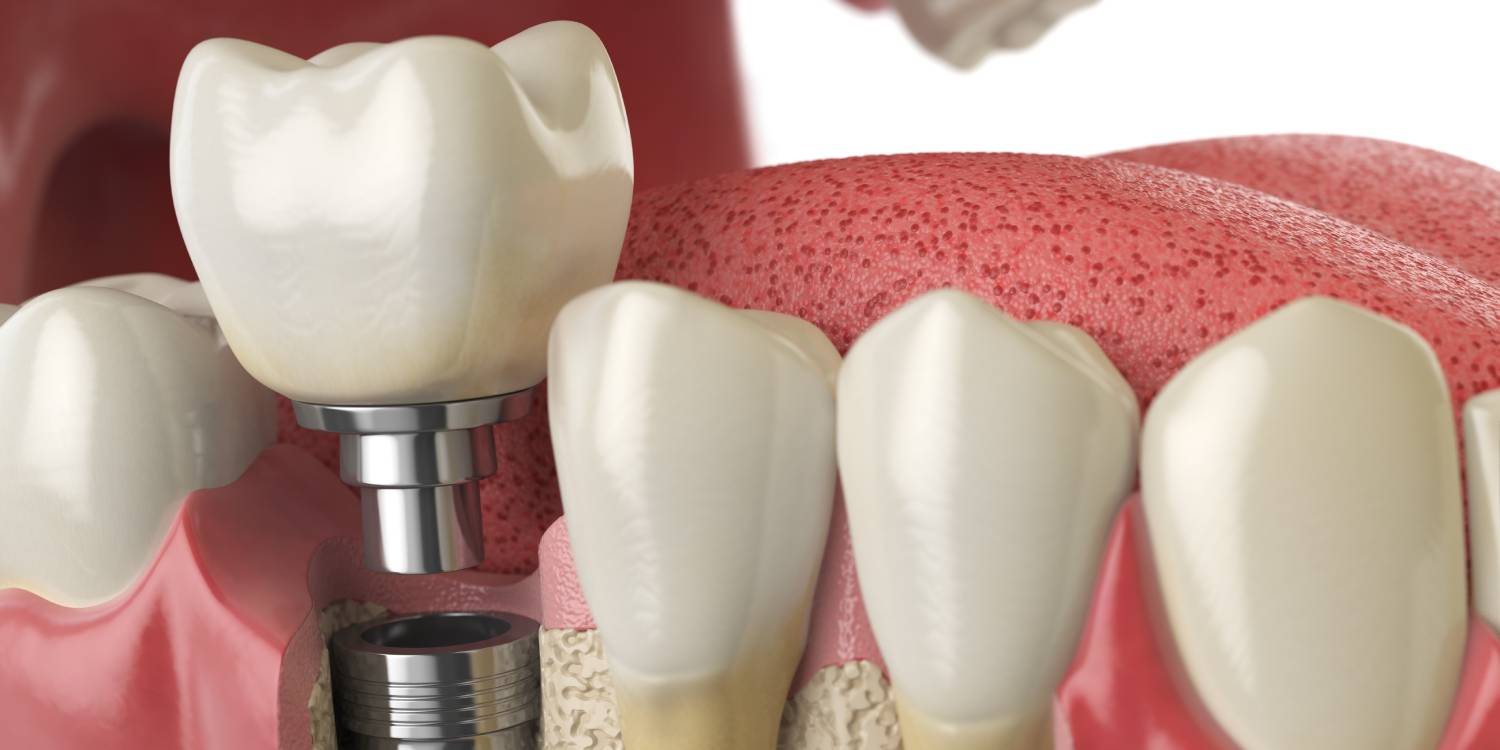Learn More About Dental Implants
Dental implants are surgical-grade root devices that support permanent tooth prosthetics that are manufactured to last a lifetime. These artificial roots are anchored in the bone beneath the gums where they become fused into the jaw. A crown is mounted atop the implant for a long-lasting and natural looking smile. Many dentists and patients prefer dental implants because they offer the same function as natural teeth and also help prevent bone atrophy in the jaw. Dental implants may be used to replace a single missing or damaged tooth or to restore an entire smile.
In the realm of restorative dentistry, dental implants stand out as revolutionary solutions for those grappling with tooth loss. Whether due to decay, injury, or other dental issues, missing teeth can significantly impact not only your smile but also your oral health and self-confidence. However, thanks to advancements in dental technology, dental implants offer a remarkable opportunity to reclaim the natural look, feel, and function of your teeth.
Understanding Dental Implants: Dental implants are titanium posts surgically inserted into the jawbone beneath the gum line to serve as artificial tooth roots. These posts provide a sturdy foundation for attaching replacement teeth, such as crowns, bridges, or dentures. Unlike traditional bridges or dentures, which sit atop the gum line, implants fuse with the jawbone through a process called osseointegration, ensuring unparalleled stability and durability.
The Benefits of Dental Implants:
- Improved Aesthetics: Dental implants look and feel like natural teeth, seamlessly blending with your existing smile for a flawless appearance.
- Enhanced Functionality: Unlike removable dentures, implants allow for unrestricted chewing and speaking, empowering you to enjoy your favorite foods and engage confidently in social interactions.
- Preservation of Jawbone: Tooth loss can lead to bone deterioration in the jaw, affecting facial structure and causing further dental complications. Dental implants stimulate bone growth, preserving jawbone density and maintaining facial contours.
- Longevity: With proper care and maintenance, dental implants can last a lifetime, making them a cost-effective and enduring solution for tooth replacement.
The Implant Procedure: The journey to a revitalized smile begins with a comprehensive consultation and examination by a skilled dentist. During this initial assessment, your dentist will evaluate your oral health, discuss your treatment goals, and formulate a personalized treatment plan tailored to your unique needs.
The implant procedure typically involves several stages:
- Placement of the Implant: Under local anesthesia, the implant post is surgically positioned into the jawbone. Over the following months, the implant integrates with the surrounding bone tissue, forming a stable foundation.
- Abutment Placement: Once osseointegration is complete, an abutment is attached to the implant to connect the replacement tooth or teeth.
- Placement of the Restoration: Finally, custom-made crowns, bridges, or dentures are securely affixed to the abutments, completing your smile transformation.
Did you know…
That approximately 30 million people live with no natural teeth in one or both jaws? But more and more dental patients are opting for dental implants as a means of tooth replacement. The American Academy of Implant Dentistry reports that 3 million people currently have dental implants – a number that is rapidly growing by about 500,000 per year. Modern titanium implants were first developed in the 1950’s, but archeologists have determined that ancient Egyptians and Mayans were the first cultures to implant artificial teeth.
Frequently Asked Questions
Are dental implants right for me?
You may qualify for dental implants if you have missing, broken or severely decayed teeth and are in relatively good overall health. The only way of determining your eligibility for implants is to consult with an oral care provider to identify whether you have adequate bone support and healthy gums that will support the new tooth structure.
What should I expect if my dentist and I decide dental implants are right for me?
The placement of dental implants is a multi-step process that typically takes between 6 and 9 months to complete. It begins with a surgical procedure during which a titanium rod is placed where a previous natural tooth root once was. The gums are sutured shut over the implant, where is will stay for several months while it heals and begins fusing with the surrounding bone. Due to the nature of implant placement and its average procedure time of between 1 and 2 hours, you’ll be sedated and/or anesthetized for the duration of the treatment. At the conclusion of the healing period, you’ll return to be fitted for permanent crowns and have them placed.
What type of post-treatment care will I require?
It is normal to experience some discomfort, including bruising and swelling following a dental implant procedure. However, inflammation and pain may be managed with over-the-counter medications, hydrocodone, or codeine. You may be asked to eat only soft foods for approximately 2 weeks until the surgical site heals.

